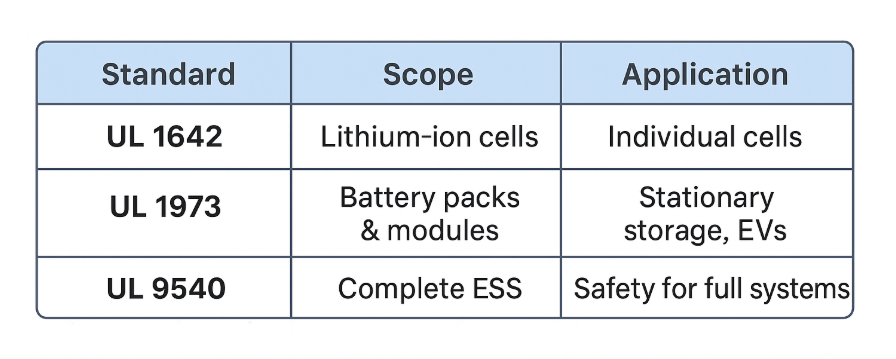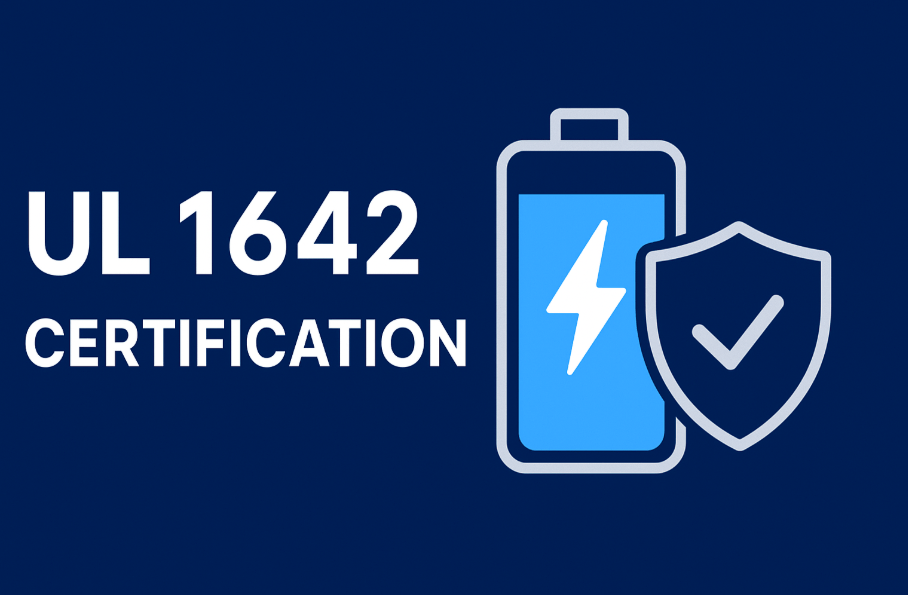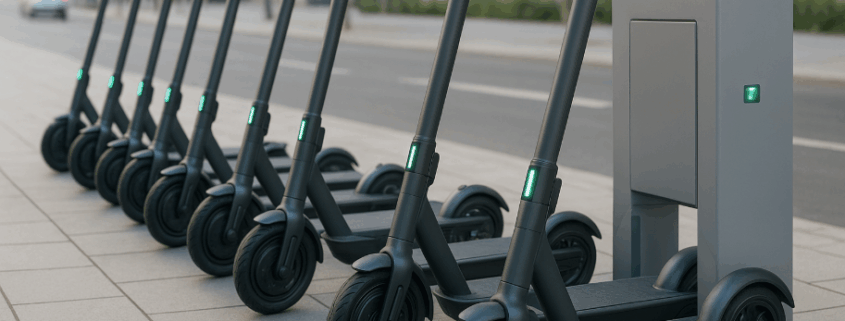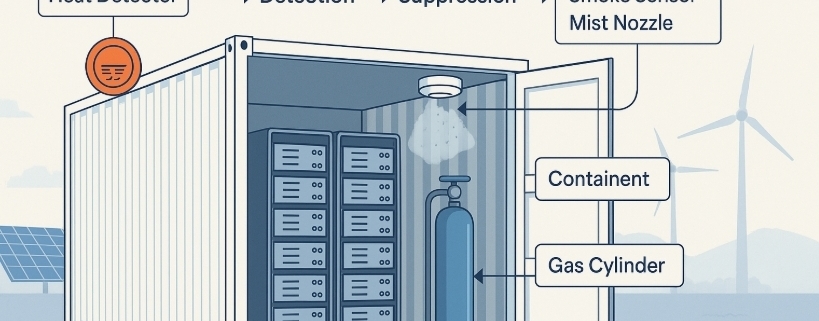UL 1642 Certification: Why It Matters for Lithium-Ion Battery Safety
What is UL 1642 Certification?: Lithium-ion batteries power nearly every aspect of our modern lives—electric vehicles, energy storage systems (ESS), consumer electronics, and medical devices. With this widespread adoption comes a heightened need for safety.
UL 1642 Certification is one of the most widely recognized safety standards for lithium-ion cells. It provides rigorous testing criteria to ensure that these cells perform reliably and minimize risks of fire, explosion, or leakage. For companies like Sunlith Energy, aligning products with UL 1642 builds trust and demonstrates commitment to global safety standards.
Understanding UL 1642: The Scope of Certification
UL 1642 specifically applies to lithium-ion and lithium-metal cells, not complete battery packs or energy storage systems.
- Scope: Evaluates individual battery cells.
- Objective: Ensures cells resist hazardous conditions such as overcharging, short circuits, and high temperatures.
- Coverage: Tests for mechanical, electrical, and environmental stress conditions.
By certifying cells under UL 1642, manufacturers establish a solid foundation for further certifications like UL 1973 (batteries for stationary use) and UL 9540 (energy storage systems).
👉 Related: UL 1973 Certification for Battery Systems
Key Testing Requirements of UL 1642
To achieve UL 1642 compliance, lithium-ion cells undergo rigorous testing protocols designed to simulate real-world hazards. These include:
1. Electrical Abuse Testing
- Overcharge tests
- Forced discharge conditions
- Short-circuit simulation
2. Mechanical Stress Testing
- Crush resistance
- Impact/shock exposure
- Vibration endurance
3. Environmental Testing
- High and low temperature cycles
- Humidity and pressure variations
- Altitude simulations
4. Fire and Safety Checks
- Flammability and explosion risk assessment
- Venting and leakage monitoring
These tests ensure that cells can handle extreme operating environments without catastrophic failure.
Why UL 1642 Certification Matters
Lithium-ion batteries are known for their high energy density, but that also makes them prone to thermal runaway if not properly managed. UL 1642 provides manufacturers, regulators, and end-users with confidence in battery safety.
Benefits of UL 1642:
- ✅ Safety Assurance: Demonstrates resistance to overheating and fire risks.
- ✅ Regulatory Compliance: Required for global exports and OEM partnerships.
- ✅ Market Trust: Strengthens brand reputation and product acceptance.
- ✅ Foundation for System Certification: A stepping stone for UL 1973 and UL 9540.
For Sunlith Energy, integrating UL 1642-certified cells into solutions ensures maximum reliability in battery energy storage systems (BESS) and beyond.
UL 1642 vs. Other UL Standards
Many people confuse UL 1642 with other UL certifications. Here’s how they differ:

| Standard | Scope | Application | Relationship |
|---|---|---|---|
| UL 1642 | Lithium-ion cells | Individual cells | Foundation for higher-level certifications |
| UL 1973 | Battery packs & modules | Stationary energy storage, EVs | Requires cell-level UL 1642 compliance |
| UL 9540 | Complete ESS | Residential & commercial | Ensures overall system safety |
| UL 9540A | Fire testing method | Lithium-ion systems | Evaluates thermal runaway propagation |
👉 Related: UL 9540 vs. UL 9540A Explained
Industries That Rely on UL 1642 Certification
UL 1642 is critical across industries where battery safety is non-negotiable:
- Energy Storage Systems (ESS): Large-scale grid and commercial storage.
- Electric Vehicles (EVs): Battery packs rely on UL 1642-certified cells.
- Medical Devices: Life-supporting electronics require safe cells.
- Consumer Electronics: Smartphones, laptops, and wearables.
- Aerospace & Defense: Mission-critical applications demand proven reliability.
By ensuring compliance, companies reduce liability and improve adoption across global markets.
Sunlith Energy and UL Compliance
At Sunlith Energy, we prioritize safety and compliance in every solution. Our expertise in battery energy storage systems (BESS) integrates UL-certified components, ensuring our clients meet international safety standards without compromise.
Whether you’re developing grid-scale energy projects or industrial ESS solutions, choosing UL 1642-certified cells is the first step in building a safe, reliable, and future-ready system.
👉 Explore more: IEC Certifications for BESS
Conclusion: Building Trust with UL 1642 Certification
As the global demand for lithium-ion batteries accelerates, UL 1642 certification remains the gold standard for cell-level safety assurance. It reduces risks, improves market acceptance, and lays the groundwork for advanced certifications like UL 1973 and UL 9540.
For energy storage innovators and partners working with Sunlith Energy, compliance isn’t just a checkbox—it’s a commitment to safety, reliability, and global leadership.
✅ Key Takeaway: UL 1642 Certification ensures lithium-ion cells meet the highest safety standards, making it a cornerstone for trusted energy storage solutions.
1. What is UL 1642 Certification?
UL 1642 is a safety standard that applies to lithium-ion and lithium-metal cells. It ensures cells can withstand electrical, mechanical, and environmental stress without causing fire, explosion, or leakage.
Frequently Asked Questions (FAQ) about UL 1642 Certification
2. Does UL 1642 cover battery packs or just cells?
UL 1642 applies only to individual cells. Battery packs and modules require additional certifications such as UL 1973 for stationary applications and UL 9540 for full energy storage systems.
3. Why is UL 1642 Certification important for lithium-ion batteries?
Because lithium-ion cells have high energy density, they can pose fire or explosion risks if not properly designed. UL 1642 testing validates that cells meet the highest safety standards, reducing liability and building market trust.
4. How does UL 1642 Certification differ from UL 1973 and UL 9540?
UL 1642: Tests individual lithium-ion cells.
UL 1973: Covers full battery modules and packs for stationary storage and EVs.
UL 9540: Ensures complete energy storage systems (ESS) meet fire and safety requirements.
👉 Related: UL 9540 Certification for BESS
5. Is UL 1642 certification mandatory?
While not legally required in every country, UL 1642 is considered a global benchmark for lithium-ion cell safety. Most manufacturers and system integrators require it for compliance and international trade.
6. Which industries rely on UL 1642-certified cells?
UL 1642 is critical in:
Aerospace & Defense
Energy Storage Systems (ESS)
Electric Vehicles (EVs)
Medical Devices
Consumer Electronics
7. How does Sunlith Energy use UL 1642-certified cells?
At Sunlith Energy, we integrate UL 1642-certified cells into our battery energy storage systems (BESS) to ensure maximum safety, reliability, and compliance for our global partners.





